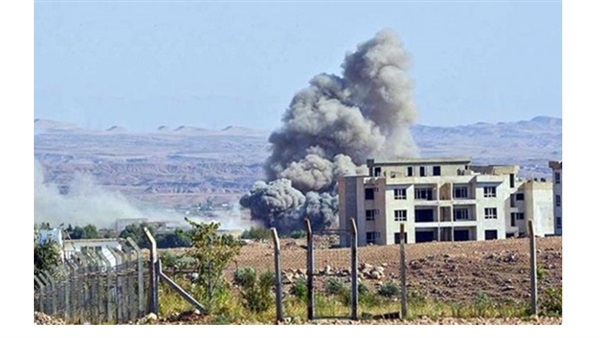Iran continues to target Iraqi Kurdistan

The Iranian regime continues to target the Kurdish region in northern Iraq with missiles and violent shelling, which left many civilian victims dead and wounded, some of them women and children, in an attempt to cover up the popular protests inside Iran, especially in the Kurdish regions, which are spreading all over Iran.
Esmail Qaani, head of the Quds Force, threatened to invade the Iraqi borders if the Baghdad government failed to disarm the Kurdish groups hosted by the Kurdistan region, and Tehran mobilized forces on Iraq's borders.
Iranian Foreign Minister Hossein Amir-Abdollahian told reporters last week that his country had reached an agreement with the Iraqis to disarm Kurdish groups, indicating that Iran would continue its armed attacks until the agreement was implemented, but Baghdad and the Kurdistan Regional Government denied reaching an agreement.
It is noteworthy that the Kurdistan region witnessed heavy bombardment in recent weeks, as dozens of drones and ballistic missiles were launched across the border into the Kurdistan region of Iraq.
Iran accuses the Iranian Kurds living in Iraq of supporting the protests that have swept Iran since mid-September, although the protesters in all provinces did not rise up until after the death of 22-year-old Mahsa Amini, the young woman who was killed in the custody of the Iranian morality police after being subjected to physical torture.
The United Nations High Commissioner for Refugees said that Iranian refugees, including women and children, were among the victims of Iran's recent attacks on the Kurdistan region of Iraq.
The Kurdistan region has been autonomous since the 1990s and follows the federal government in Baghdad, which is under pressure from Iran.
The government of Iraqi Prime Minister Mohammed al-Sudani receives support from armed militias close to Tehran. Sudani condemned Tehran’s recent attacks on the Kurds, describing them as a violation of Iraqi sovereignty, and he urged Iraq’s neighbors not to use the country as an arena to settle scores, but Tehran made it clear that the Revolutionary Guards would launch more military attacks if the Kurdish groups were not disarmed.









